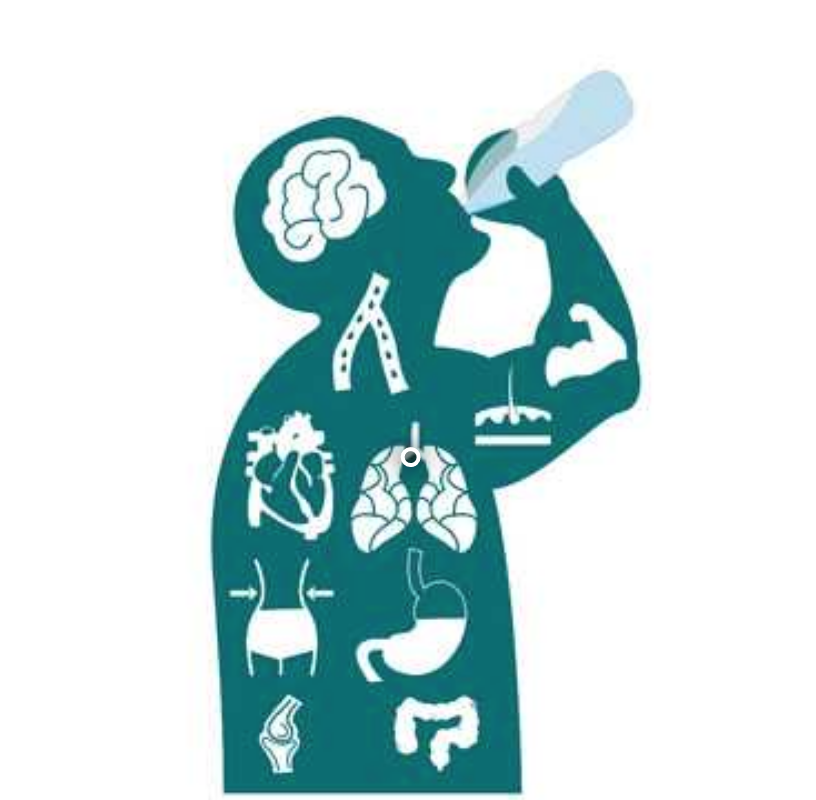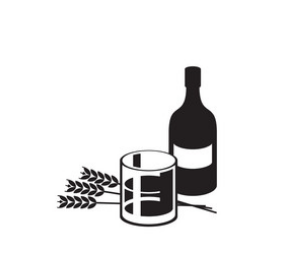The Science Behind Hangovers
The COLLEGE CLASS WE ALL WISH EXISTED
Did you know there is a scientific term for a hangover? It’s known as Veisalgia — derived from the Norwegian kveis (uneasiness following debauchery) + the Greek algia (pain). Debaucherous evening last night? You’re probably dealing with veisalgia right now.
Let’s explain the science behind the infamous hangover.
What Causes a Hangover?
Dehydration
The simplest and most familiar explanation is that hangovers are the result of alcohol-induced dehydration. As alcohol is consumed, it enters the bloodstream and causes the brain to shut off the creation of vasopressin (an antidiuretic). Despite lengthy attempts to avoid breaking the seal, the diuretic effect of excessive alcohol will increase urine production and leave you dehydrated.
Waking up after a long night of overindulgence, your body sends a desperate message to replenish its water supply — likely manifesting in the form of an extremely dry mouth. A pounding headache, fatigue, and nausea are also common symptoms of dehydration that come as a result of low potassium, sodium, and other vital electrolytes. Cue the Pedialyte!
Congeners
Different types of alcohol can result in different types of hangovers. This is oftentimes blamed on congeners — byproducts of fermentation. From a distilling perspective, a congener is anything that isn’t ethanol. For example, whiskey’s less heavily rectified distilling process preserves many congeners created during mashing (esters, acids, aldehydes, etc). Vodka, on the other hand, is more highly rectified, removing almost all of the congeners from the mash and creating a product that’s much closer to pure ethanol. As a general rule, the more distilled a spirit is, the lower the congeners.
So darker alcohol (bourbon, whiskey, red wine, etc) contains a higher concentration of congeners than lighter alcohol (vodka, gin, white wine, etc). As a result, drinking darker booze will likely increase the severity of your hangover. So, if you’re trying to avoid a hangover but still want to drink, stick to lighter-colored booze. However, we guarantee that the $6 handle of GNS vodka on the bottom shelf of the liquor store will create a much worse hangover than the pricier triple-distilled option on the top shelf due to distillation techniques and filtering of congeners that affect the overall quality of spirit (more on the processing of congeners below).
Acetaldehyde
When your body metabolizes alcohol, it creates a byproduct called acetaldehyde, estimated to be between 10 and 30 times as toxic as alcohol itself. When you’re drinking a lot, it can be hard for your liver to keep up with producing enzymes to process acetaldehyde. As a toxic compound, acetaldehyde can promote cell and tissue damage which triggers an inflammatory response (aka hangover headache, nausea, and fatigue) by releasing norepinephrine and epinephrine to combat the toxin. The cocktail of symptoms associated with a hangover is really just your body trying to get rid of excess acetaldehyde. Some researchers have concluded that acetaldehyde is the true culprit in inducing hangovers.
PROCESSING OF CONGENERS
Congeners are what give alcohol its unique character and flavor profile. While some congeners taste good, others taste nasty, and controlling which congeners end up in your bottle is the magic of distilling and spirit-making. Sloppy or inadequate distillation can leave many of the nasty congeners in the mix which leads to a hardcore hangover. That’s one reason why higher-end spirits (with premium standards and levels of distillation) are less likely to cause you problems the morning after than if you consumed the same amount of the cheaper spirit.
It all comes down to the game of heads, hearts, and tails. During the distillation process, the first vapors to boil off the water (those with low boiling points) are more volatile alcohols known as heads. The next stage of distillation reveals the heart (aka ethanol alcohol, the “feel good” molecule that we explained in Industry Terminology 101). By purposefully controlling and diverting the flow of spirit during distillation, the desirable heart can be separated and stashed away to be bottled in the final product. After the hearts have been harvested, this leaves water, carbohydrates, and proteins with higher boiling points, known as the tails, to be separated. Experienced distillers know when to ‘cut’ the outflow from heads to hearts and hearts to tails, resulting in a potent and good-tasting spirit that minimizes nasty congeners while achieving the desired taste profile. This process of distillation can be performed repeatedly, each time further concentrating the desired elements (hearts) and leaving out the undesirable (heads and tails). Now you know why triple-distilled spirits come with a smoother taste profile, higher price tag, and less severe hangover when compared to their single-distilled counterparts on the bottom shelf of the liquor store.
(SCIENTIFIC) REMEDIES FOR HANGOVERS
Instead of guzzling black coffee or crushing a quick morning beer to ride out your hangover, check out a couple of these scientific supplements to tame the beast.
Dihydromyricetin (DHM)
DHM is an over-the-counter herbal remedy which helps the body metabolize alcohol faster. According to a recent study out of the University of Southern California, DHM proves to ease the hangover headache and nausea along with benefiting the liver by producing more ethanol-gobbling enzymes and suppressing inflammatory responses to the lingering toxins of booze.
L-Cysteine
L-Cysteine is an amino acid that can be found in supplement form along with real food like eggs, nuts, and dairy. In a Finnish study conducted in July of 2020, L-Cysteine tablets proved to benefit hungover participants by accelerating the riddance of acetaldehyde, decreasing headaches and nausea, and mitigating stress and anxiety levels associated with their hangover.
Water, Water, Water
The science is simple with this one. Regardless of whatever scientific or homemade hangover remedy you choose, be sure to replenish your dehydrated body with the simplest of all supplements — WATER. If your drunk dancing self has the motivation to do so, try to crush a glass of water between each boozy beverage to mitigate the hangover haze the next morning. Water is a necessity of life, but you already know that ;)











